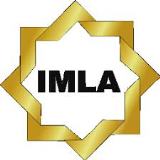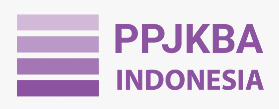The Influence of Self-Efficacy on Arabic Public Speaking Anxiety/تأثير الكفاءة الذاتية على قلق التحدث باللغة العربية أمام الجمهور
DOI:
https://doi.org/10.22515/athla.v5i1.9428Keywords:
Self-efficacy, Public speaking anxiety, Arabic language learning, Educational strategiesAbstract
Public speaking anxiety and self-efficacy are significant factors affecting students' performance in language learning, particularly in Arabic. This study explores the relationship between self-efficacy and public speaking anxiety among 9th-grade students at Madrasah Tsanawiyyah Negeri 4 Karanganyar. Understanding this relationship is essential for developing strategies to enhance students' speaking skills and reduce anxiety. The primary objective of this research is to determine the influence of self-efficacy on public speaking anxiety among 9th-grade students. A quantitative research approach was adopted, utilizing Likert scale questionnaires for data collection. The population consisted of 155 9th-grade students, from which a sample of 61 students was randomly selected using the Slovin formula. Data were collected using Bandura's (1997) General Self-Efficacy Scale and Lang's (1971) Public Speaking Anxiety Scale. The data were analyzed using SPSS version 25. The study found a significant negative relationship between self-efficacy and public speaking anxiety. Students with higher self-efficacy levels exhibited lower levels of anxiety when speaking in public. Specifically, self-efficacy accounted for 79.9% of the variance in public speaking anxiety, with a t-value of -15.291 and a significance level of p < 0.05. These findings indicate that enhancing self-efficacy can substantially reduce public speaking anxiety among students. Improving students' self-efficacy is crucial in mitigating public speaking anxiety, which in turn can enhance their academic performance and confidence. The implications of this study suggest that educational institutions should implement programs and strategies aimed at boosting self-efficacy to create a supportive learning environment. Future research should explore additional factors influencing public speaking anxiety and develop comprehensive approaches to address this issue.
Downloads
References
Anwar, I. (2010). Hubungan Antara Self Efficacy dengan Kecemasan Berbicara di Depan Umum pada Mahasiswa Fakultas Psikologi Universitas Sumatera Utara.
Arief Rachman, F. Y. (2017). Pengaruh Self Efficacy Terhadap Kecemasan Berbicara Di Depan Umum Pada Mahasiswa Bahasa Arab. Jurnal Pendidikan Bahasa Dan Sastra, 2, 105–116. https://doi.org/10.17509/bs_jpbsp.v17i2.7615
Bandura, A. (1997). Self efficacy: The exercise of control. W.H.Freeman.
Elmenfi, A. G. and F. (2014). The Role of Gender in Influencing Public Speaking Anxiety. International Journal Og Gender and Women’s Studies, 2, 105–116.
Frank, C. P. (1988). the Development of Academic Advising Programs. NACADA Journal, 8(1), 11–28. https://doi.org/10.12930/0271-9517-8.1.11
Harrison Monarth, L. K. (2007). The Confident Speaker: Beat your Nerves and Communicate at Your Best in Any Situation. McGraw-Hill Professional.
Hermawan, A. (2011). Metodologi Pembelajaran Bahasa Arab (A. Solihin (ed.)). Remaja Rosdakarya.
HORWITZ, E. K., HORWITZ, M. B., & COPE, J. (1986). Foreign Language Classroom Anxiety. The Modern Language Journal, 70(2), 125–132. https://doi.org/10.1111/j.1540-4781.1986.tb05256.x
Lang, P. J. (1977). Imagery in therapy: an information processing analysis of fear. Behavior Therapy, 8(5), 862–886. https://doi.org/10.1016/S0005-7894(77)80157-3
MacIntyre, P. D., & Gardner, R. C. (1994). The Subtle Effects of Language Anxiety on Cognitive Processing in the Second Language. Language Learning, 44(2), 283–305. https://doi.org/10.1111/j.1467-1770.1994.tb01103.x
McCrosky, J. C. (2016). An Introduction To Rhetorical Communication (9th ed.). Routledge.
Pajares, F. (2002). Overview of social cognitive theory and of self-efficacy.
Riani, W. S., & Rozali, Y. A. (2014). Hubungan antara self efficacy dan kecemasan saat presentasi pada mahasiswa univeristas esa unggul. Jurnal Psikologi, 12(1), 1–9. https://ejurnal.esaunggul.ac.id/index.php/psiko/article/view/1457
Schwarzer, R., Jerusalem, M., & Johnston, M. (1995). Generalized Self-Efficacy Scale. January 2021.
Utomo, H. (n.d.). Hubungan antara kematangan emosi dan self efficacy dengan kecemasan berbicaradi depan umum pada mahasiswa Surabaya. 2012.
Widiasavitri, T. (2016). Komunikasi Efektif Dalam Pembelajaran. Jurnal Pendidikan. https://doi.org/10.17977/jptpp.v3i12.10325
Woodrow, L. (2006). Anxiety and speaking English as a second language. RELC Journal, 37(3), 308–328. https://doi.org/10.1177/0033688206071315
Downloads
Published
How to Cite
Issue
Section
Citation Check
License
Copyright (c) 2024 Intiha Bima Tafriha, Moh. Abdul Kholiq Hasan

This work is licensed under a Creative Commons Attribution-ShareAlike 4.0 International License.










